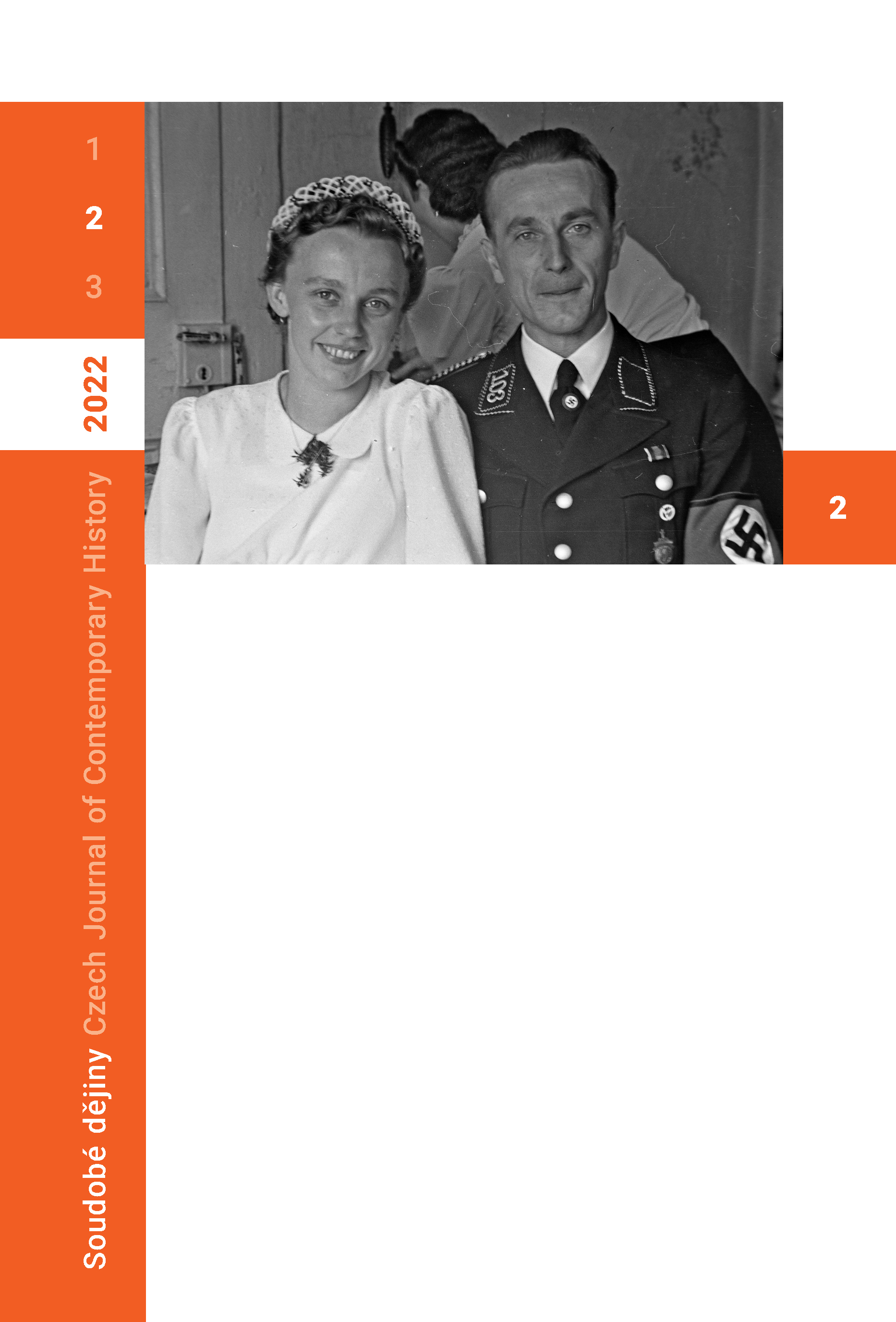"Já a moje žena si děti přejeme!"
"My wife and I do want to have childern!"
SS Population Policy on the Example of Gestapo Members in the Protectorate of Bohemia and Moravia
Author(s): Jan Vajskebr, Jan ZumrSubject(s): History, Political history, Social history, Interwar Period (1920 - 1939), WW II and following years (1940 - 1949), Fascism, Nazism and WW II
Published by: AV ČR - Akademie věd České republiky - Ústav pro soudobé dějiny
Keywords: Protectorate of Bohemia and Moravia;Germany;Third Reich;Nazism;population policy;family;Gestapo;SS organization
Summary/Abstract: The article is based on the ongoing research into the personnel composition of the Gestapo command staff in the Protectorate of Bohemia and Moravia, which is carried out at the Institute for the Study of Totalitarian Regimes (Ústav pro studium totalitních režimů – ÚSTR) in Prague. The authors subscribe to the so-called newer research on perpetrators (neuere Täterforschung), which does not see the members of the Nazi administration and security forces as a homogeneous mass but looks for common and distinct features among them. They devote their article to the topic of population and family politics within the German repressive apparatus in the Protectorate and use concrete cases to show how individual actors sought, through various strategies, to meet the rigid demands of the Reich’s SS leader, Heinrich Himmler (1900–1945). They state that the goal of population policy in Nazi Germany was to raise numerous, “racially valuable” and healthy offspring, and the SS organization was to be the vanguard in this respect. Despite certain contradictory trends, as represented by the Lebensborn programme, the family was to become the basis of the Third Reich’s population policy. The authors outline the official directives and the demanding bureaucratic procedures that the SS and Gestapo applicants (and often their partners, too) had to comply with for marriage, and highlight the institutions that were competent in assessing these applications. The central criterion was “racial purity”. Marriages between members of these organisations and foreign nationals were undesirable and rarely permitted. The article argues that the requirement for a large family within the SS and Gestapo was not a mere formality but a factor carefully monitored in the evaluations and proposals for promotion, often decided at the highest level by Himmler himself, who did not hesitate to interfere in the private lives of his subordinates with his demands. In general, the members of the German security apparatus proclaimed a will to expand their family, but its size remained mostly below the Reich’s average. Only less than a tenth of the leading Gestapo officials in the Protectorate of Bohemia and Moravia had the required four or more children, whether because of their advanced age, inadequate material conditions, health problems, separation from their families, or simply because of their unwillingness to have more offspring. According to the authors, these figures roughly corresponded to the general conditions in the SS, which leads them to the conclusion that in the context of the official population policy of the Third Reich, the members of the SS – the “pride of the regime” organization – clearly failed.
Journal: Soudobé Dějiny
- Issue Year: XXIX/2022
- Issue No: 2
- Page Range: 415-440
- Page Count: 26
- Language: Czech

